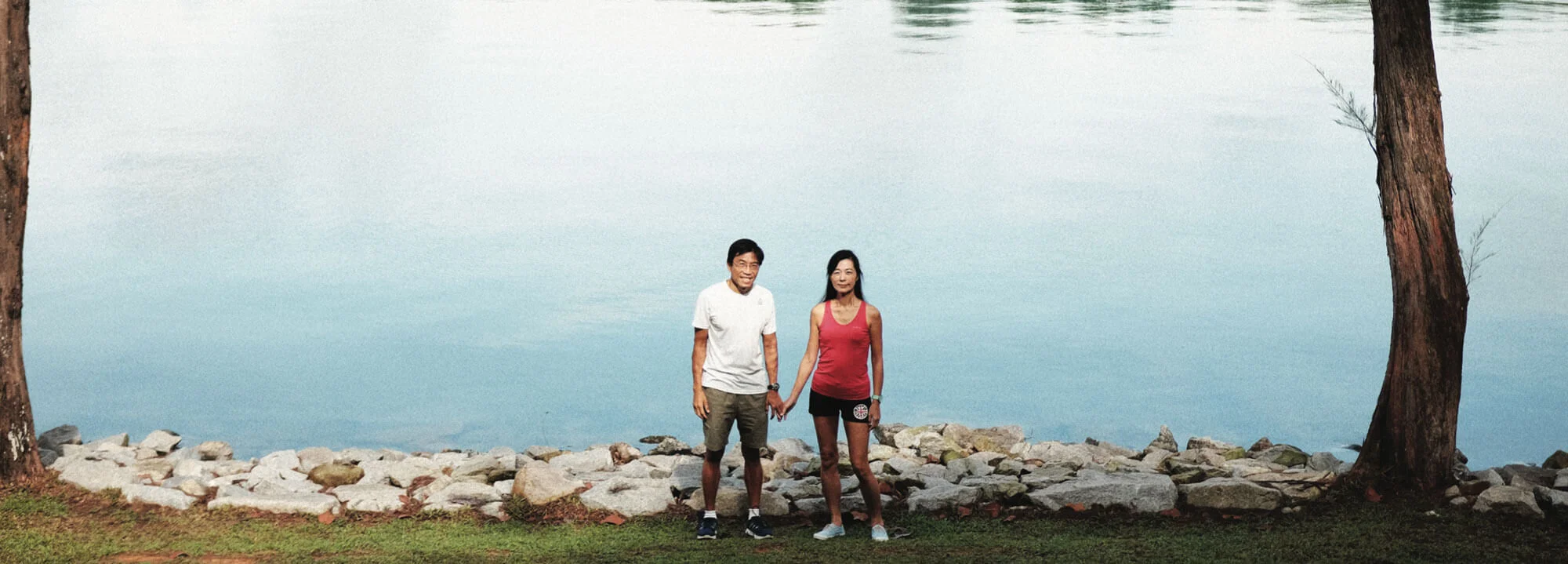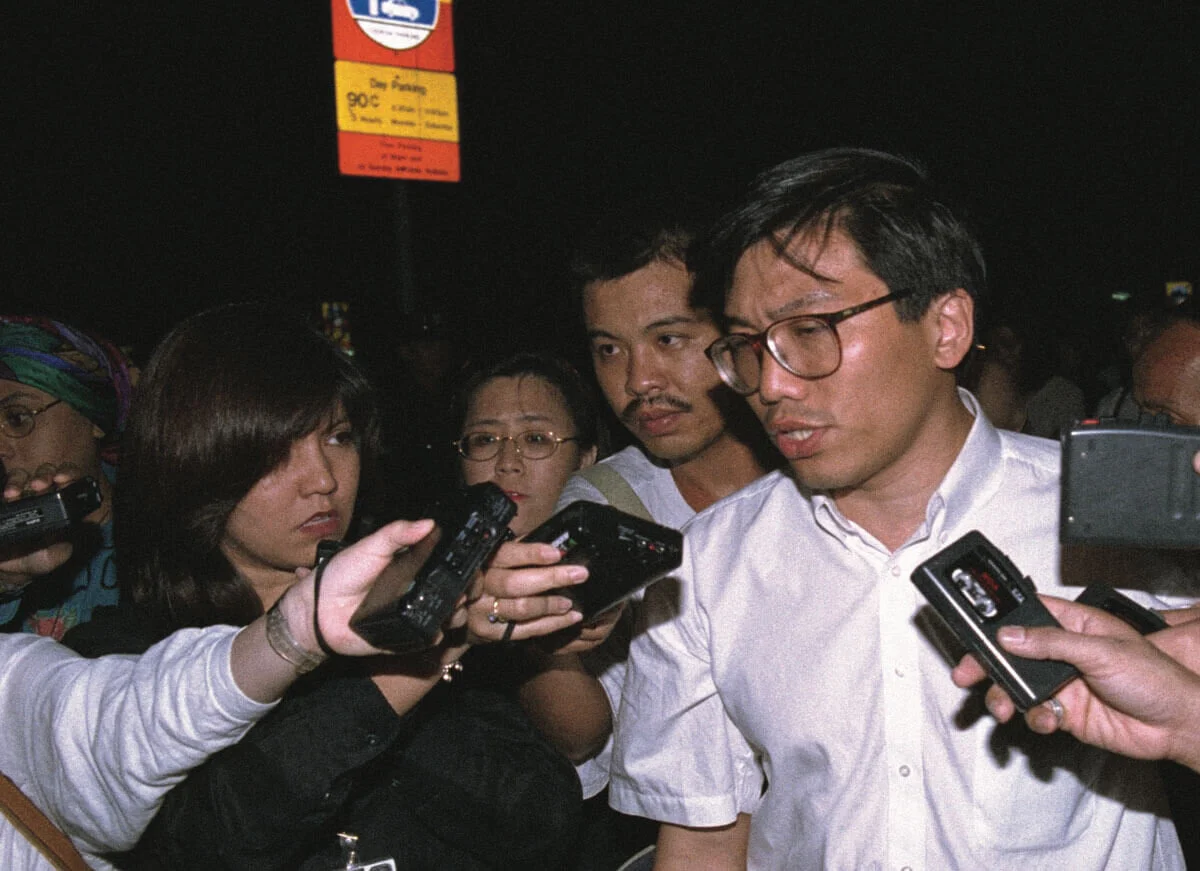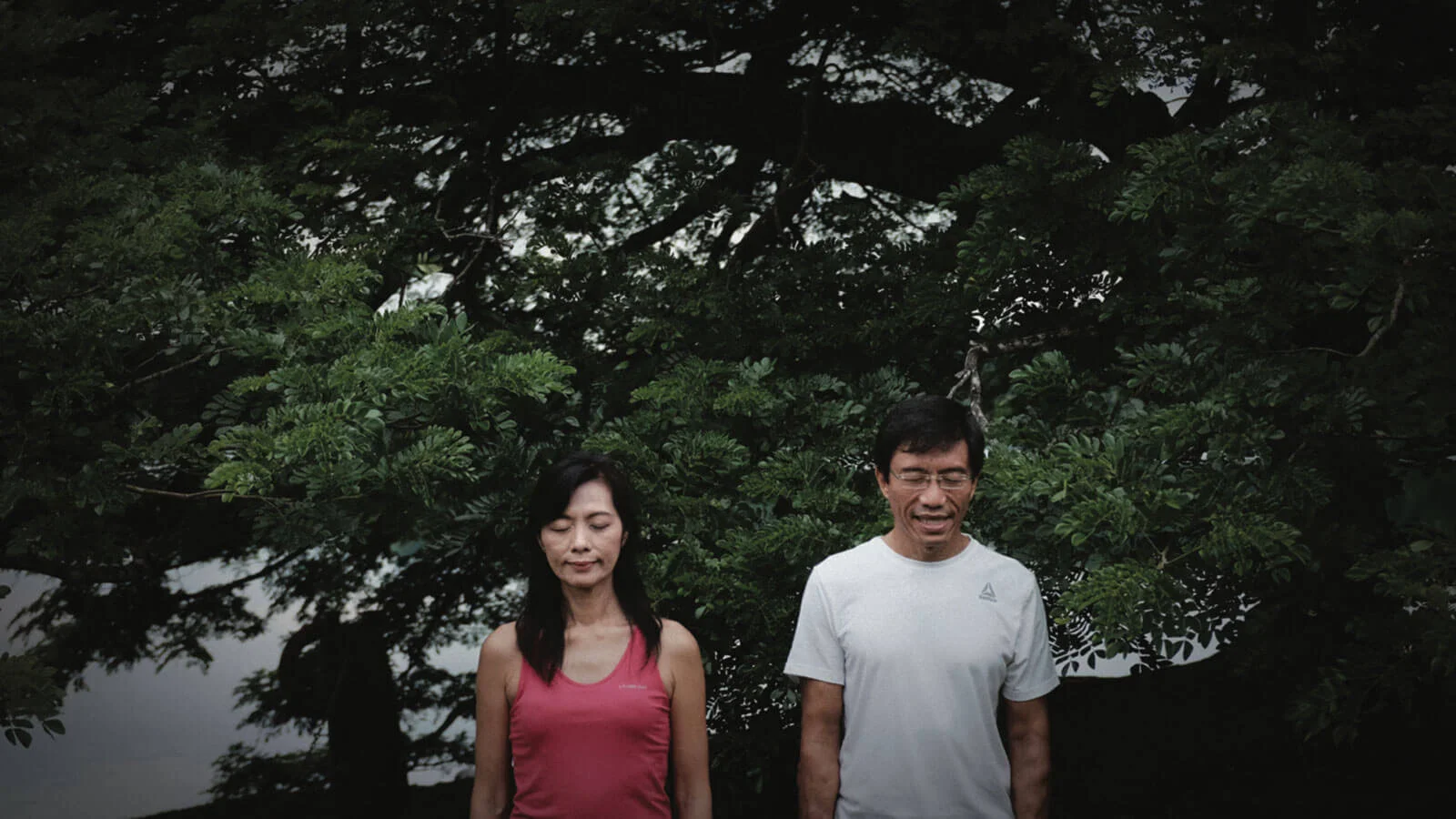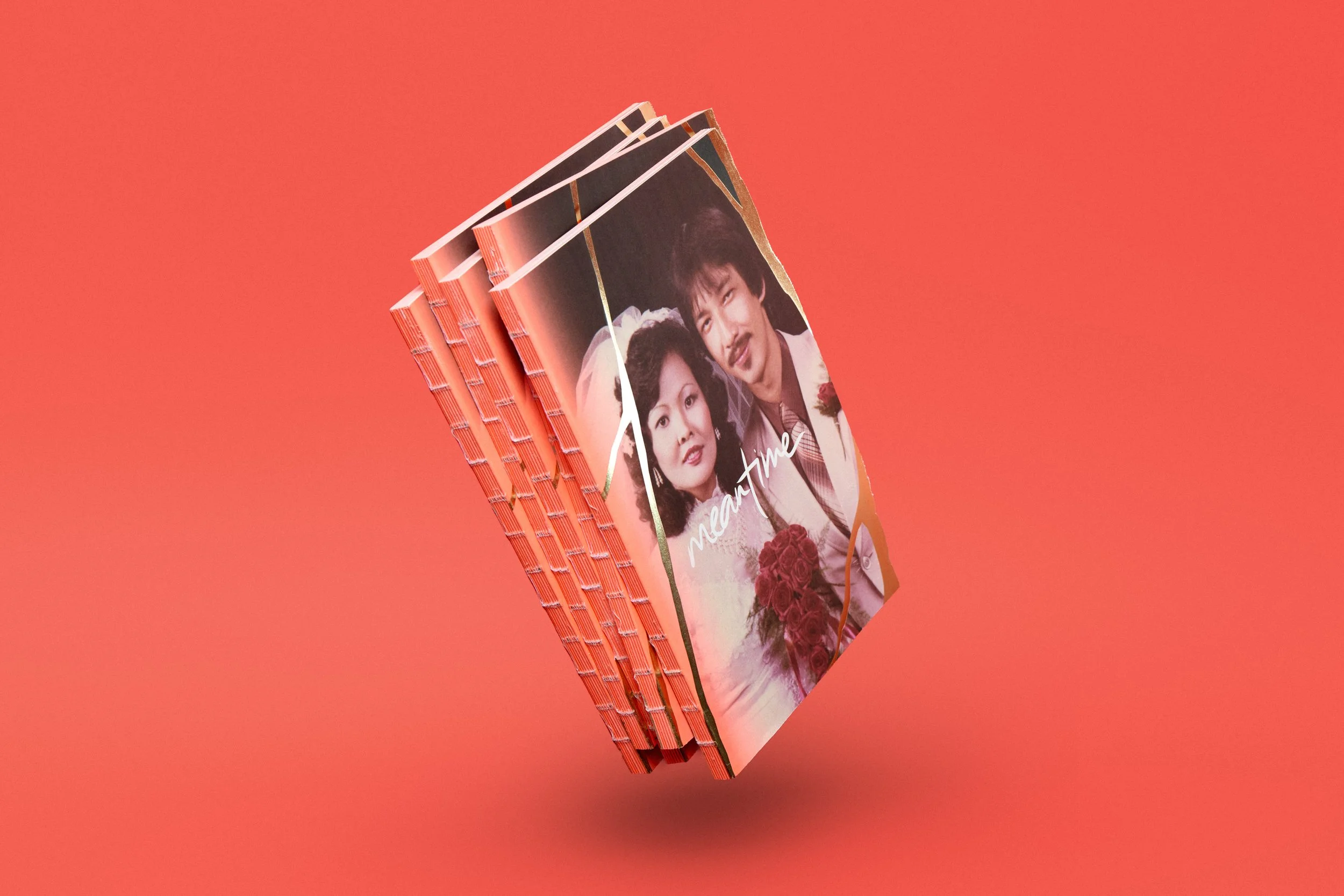For better, for worse
Issue #1
By Pang Xue Qiang
In the 80s, while studying in the U.S., Chee Soon Juan had a motorbike that took him places. It took him to part-time work at a Chinese restaurant, where he was waiting tables so he could pay rent and put food on his table.
It also took him on his first date with Huang Chih Mei, who would later become his wife.
On the fateful night of their first date, he borrowed a second helmet and cautiously asked if she minded riding pillion. Thankfully, she didn’t.
On the ride, she held onto him for her life – against the cold, knocking her helmet on his, a silence fell between them.
There is something meditative about being on a motorbike. The chaos around seem to envelop you.
You zip
back and forth
through alleys.
Drivers cut you off, swerving into your lane. But you focus on the road.
They ended up watching Good Morning, Vietnam, which starred the late Robin Williams. They went for pizza after the movie, but she paid for dinner. One, she was on a scholarship, and two, she saw him struggling with his wallet.
The motorbike ran well, except for one problem, Dr Chee said. The ignition key didn’t work. But it didn’t matter, he could kickstart the thing with a push and a short run.
. . .
The two met while in graduate school at the University of Georgia. He was a Singaporean student with an eye on a future in politics. She was a slim and tall Taiwanese student who caught his eyes. They were putting up a performance to raise funds as part of a student association. He played a kungfu master, and she, an imperial Chinese princess.
His Taiwanese roommate, who knew her first, had told him that courting her would take a lot of energy and effort. “High maintenance,” he had told him. “You should not waste your time.”
But Dr Chee thought otherwise. He wasn’t just going to sit around, wait and pass the chance.
“I summoned up enough courage to talk to her even though she was from Taiwan, and I could barely speak Mandarin,” he said. “It certainly wasn’t love at first sight. It took a lot of persuasion and wooing.”
“I was very tall. But he was skinny,” Dr Huang said. “If I had met him earlier, I probably wouldn’t be looking at him.”
. . .
We agreed to chat in a coffee shop at Sin Ming Road. He was having problems with his family car, a decades-old maroon Nissan, and had sent it to a workshop nearby for servicing.
The coffee shop auntie came up to us for drink orders. She recognised the political figure, smiled and nodded.
“Kopi for me. Do you have horlicks?” Dr Chee said instantly, the latter for his wife, which he knew without having to ask her. It must be her favourite drink.
Before meeting Dr Chee, I thought we knew a lot about him.
We had learnt about him at school, in the papers and on TV. And for years, there had always been something slightly off-putting about his public image.
He had been sued for defamation by ruling party politicians, and dismissed from his job as a university lecturer. He had been called names: troublemaker, liar, cheat, gangster, failure, psychopath. He had been stripped of his possessions: jailed and bankrupt.
It was 1997, and an election defeat dealt a harsh blow that would alter the course of his life. Dr Chee’s political party had lost all its seats in parliament.
“Suddenly, we lost everything,” he told me. “Meanwhile, where do we go? What do we do?”
Then, they were renting a place to live. They had sold their house in order to pay a fine on Dr Chee for contempt of Parliament. To make ends meet, they had to sell their car too.
“When we scrapped the car, we lost most of our things in Singapore. There was nothing here anymore that held us back.”
When the dust has settled, they made the hard decision to uproot themselves and seek refuge with friends in Australia. With little to their name, they had to restart their lives.
“There were no concrete plans at that time. We had no children. When we left for Australia, it was the lowest point in our lives.”
The two spent a large part of their time in Monash University’s library. Dr Chee was working on writing a book. The book documents Asian activists in the fight for freedom, among them was Myanmar’s leader Aung San Suu Kyi.
Inspired by their stories, he was determined to return home to change things. Like the activists whom he had spent hours poring over their lives and studied, he waged a campaign of civil disobedience.
“I had to do something about it. I thought long and hard. As I was doing research, you see other countries went through this in order for change to happen.”
And that led to the infamous lunchtime rally in Raffles Place two years later, in 1999 – a talk that got him into jail. Then 36, he was slapped with a fine for illegal assembly, and had refused to pay, choosing instead to serve prison term.
Unbeknown to many, this act of civil disobedience resulted in the birth of the Speakers Corner – a Government-sanctioned free speech and assembly zone, which has since hosted Singapore’s annual gay rights rally and protests over immigration policies.
Yet, amid the whirlwind in 1999, while Dr Chee was at the front line of scrutiny, he was about to be a father. Dr Huang was expecting a baby.
At his conviction, while eight months pregnant, Dr Huang told the press: “I think one day when our child is old enough to understand all this, he or she will be very proud of what their father is doing today.”
. . .
“Hi papa!” the kids burst into spontaneous screams and squeals, while clinging onto their mother, jumping around. They were looking at an image of their father projected on a TV screen at the Queenstown Remand Prison.
“They were too young to understand anything,” said Dr Huang, on their prison visits. “They thought it was fun. It was like an outing.”
Families who visit the inmates choose either a face-to-face or tele-visit, using video conferencing. They had opted for the latter, because for half an hour during the tele-visit, Dr Chee gets to have air-conditioning.
“For face-to-face visits, we would wait in a room with other families. And when the time came, everyone rushed in,” Dr Huang recounted.
“When you start talking, everybody else is talking. You can’t quite hear. And you see the other through the glass. It was too traumatic for me. So we preferred the tele-visit.”
Their children were raised during the time Dr Chee was in and out of prison.
His elder daughter, An Lyn, had been born while he was imprisoned. Dr Huang had given birth to the first child, without her husband by her side.
“When I was about to deliver, the nurses or doctor didn’t ask where was my husband. They had let my mother-in-law in with me in the delivery room.”
Dr Chee knew that his wife was due soon, but he wasn’t sure when.
“I kept asking the warden, please let me know,” said Dr Chee. “It was only upon my release that I found out.”
. . .
We decided to take them to Upper Peirce Reservoir for the photo shoot. It was their sanctuary and place for solitude. The two had their wedding photo shoot here when they tied the knot in 1992. It was also here that their kids learnt to ride a bicycle.
When Dr Huang had left Taiwan to study in the U.S., her parents had told her: “Don’t marry an American.”
“Many friends had stayed in U.S. and did not go back,” she said. She did fall in love with a foreigner, though. But instead of an American, her husband was Singaporean. Her parents were sort of relieved.
Singapore is only a few hours’ flight away from home, at the very least. Her Taiwanese family could easily visit her anytime.
I wondered if she ever resented the choices Dr Chee had made.
“I won’t stop him,” she told me. “He will get upset at TV news. I tell him that instead of being angry, you should do something about it.”
“If you grow up in Singapore, to do what he had done, maybe it is seen as a big step. I’m from Taiwan, where it’s quite common to do so.”
Today, the two lead simple lives, and live in a three-room public housing flat.
“Do you need a ride out?” Dr Chee offered at the end of the photo shoot. His car had been fixed. I sat in the back seat, as the engine revved along. This time, he didn’t need to kickstart his vehicle.
Issue 5 drops
Broken heart, broken book. Explore Singapore's past through the lens of breakup stories.
Read other stories:
A man, a woman and their roti
Flour? 300 grams. Water? Half a cup. Salt? A dash. But most importantly, a pinch of trust and a spoonful of joy. Perhaps that’s Mr and Mrs Mohgan’s secret recipe for – arguably – Singapore’s best roti prata.
A forbidden love in the time of war
Though a painful past for many, the Japanese Occupation is also a bittersweet history for Monica Choon. That’s because her Cantonese mother fell in love with her father, a Japanese soldier, then. After a 40-year-long search, she finally traced his family back in Japan.
Can you find love with a single photograph?
It was May 26, 1991; a good day to be married for Sajeev and Sheeja. The astrologer said so, the parents were convinced, and the gods were in favour. Today, in a small photo studio – nearly 3 decades after their arranged marriage – the couple now help young men find love from home thousands of miles away.











